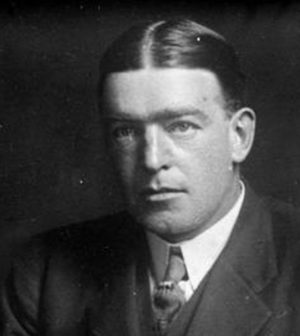- Recognizing the Signs of Hypothyroidism
- 10 Strategies to Overcome Insomnia
- Could Artificial Sweeteners Be Aging the Brain Faster?
- Techniques for Soothing Your Nervous System
- Does the Water in Your House Smell Funny? Here’s Why
- Can a Daily Dose of Apple Cider Vinegar Actually Aid Weight Loss?
- 6 Health Beverages That Can Actually Spike Your Blood Sugar
- Treatment Options for Social Anxiety Disorder
- Understanding the Connection Between Anxiety and Depression
- How Daily Prunes Can Influence Cholesterol and Inflammation
What Was Antarctic Explorer Ernest Shackleton’s Mystery Illness?

Famed Antarctic explorer Ernest Shackleton may have suffered from a deficiency of the nutrient thiamine, a condition known as beriberi, say researchers who claim they have cracked this nearly 120-year-old mystery.
Shackleton is known for his daring expeditions to Antarctica in the early 20th century. He experienced prolonged bouts of extreme shortness of breath and physical weakness on the expedition aboard the British ship Discovery from 1901 to 1903. The explorer fell seriously ill and had to return home after voyaging closer to the South Pole than any previous human.
Past theories have suggested Shackleton had a congenital heart defect and scurvy. Researchers from Massachusetts General Hospital (MGH) in Boston determined instead that it was beriberi.
“Many of the signs and symptoms of beriberi seen in early explorers developed after three months of thiamine deficiency,” explained co-author Dr. Lauren Fiechtner, director of the Center for Pediatric Nutrition at MGH.
“And that would be consistent with a thiamine-deficient diet they experienced during the grueling months of winter explorations,” she said in a hospital news release. “Fortunately, replacement of thiamine with vitamin B1 supplements can resolve the deficiency within days or hours, although that was not known at the time.”
Researchers learned that Dr. Edward Wilson, one of two physicians on that first voyage, may have suspected beriberi after consulting his medical textbooks. But so little was known about the condition at the time, and it wasn’t the diagnosis he ultimately settled on.
Wilson’s conclusion that Shackleton suffered from scurvy, a vitamin C deficiency, appeared to be an incomplete explanation for his labored breathing, said study author Dr. Paul Gerard Firth, head of the Division of Community and Global Health in the Department of Anesthesia, Critical Care and Pain Medicine at MGH.
“Historians have traditionally looked at Shackleton’s symptoms in isolation and speculated about their cause,” he said in the release.
“We looked at other explorers on the expedition, as well as members of other early expeditions, and found that some had symptoms — such as breathlessness, neuropathy and effort intolerance — similar to Shackleton’s that could be attributed to beriberi,” Firth said. “With the benefit of what we now know about nutritional diseases, we believe that beriberi-induced cardiomyopathy — a disease of the heart muscle that makes it difficult for the heart to pump blood — is the correct diagnosis for Ernest Shackleton’s deteriorating health.”
Despite his severe health challenges, Shackleton set out on a third attempt to reach the South Pole in 1914. That voyage has since been recounted in books and movies of how his ship Endurance became trapped in packed ice and broke apart. All 28 crewmen reached safety after two years and two heroic rescue efforts engineered by Shackleton.
Shackleton died at age 47 aboard his ship on his fourth expedition on Jan. 5, 1922.
“The exact nature of Ernest Shackleton’s faltering health has puzzled historians and the public for years,” Firth said, “and almost 100 years after the start of his fourth and final expedition we’re satisfied that we have finally uncovered a medically and scientifically valid explanation.”
The paper was published online recently in the Journal of Medical Biography.
More information
Nemours Children’s Health System has more on the signs and symptoms of beriberi.
SOURCE: Massachusetts General Hospital, news release, May 4, 2021
Source: HealthDay
Copyright © 2026 HealthDay. All rights reserved.










